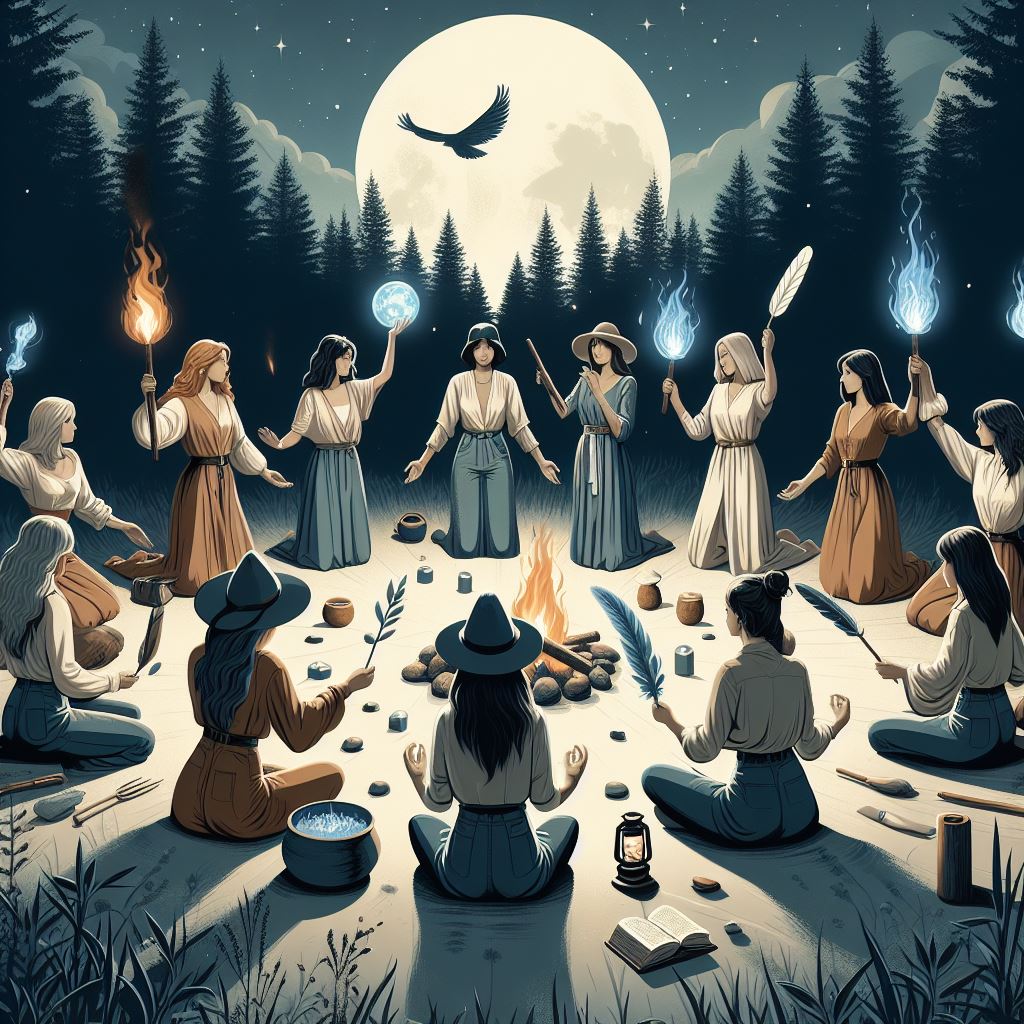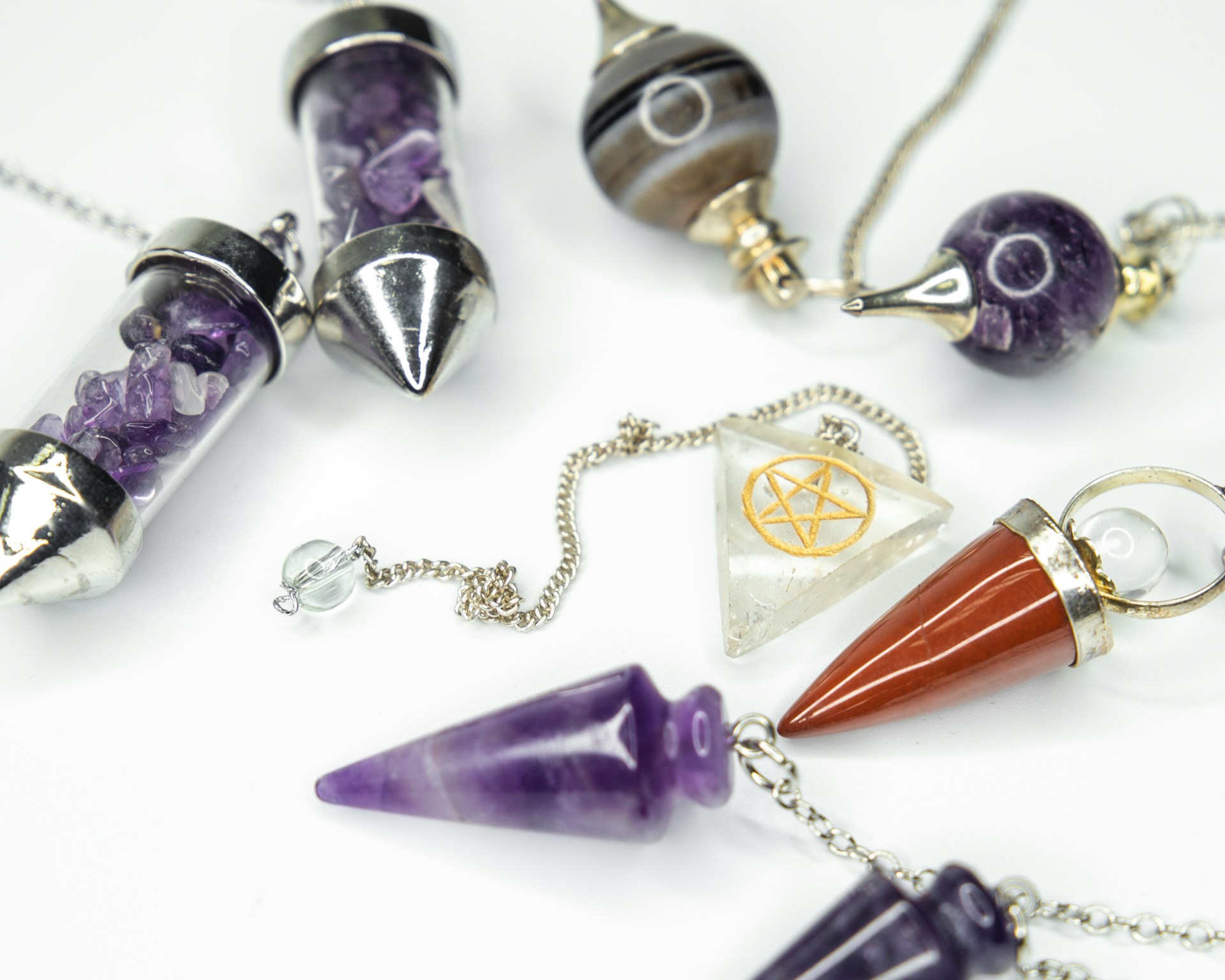Magick, often shrouded in mystery and spectacle, permeates cultures across the globe, offering a profound connection to the metaphysical aspects of existence. Unlike the flashy tricks seen in stage magic, magick is an ancient art that influences the core spiritual practices of countless traditions.
This article aims to dispel the fog surrounding magick by addressing some of the most common misconceptions that obscure its true nature and purpose. By exploring what magick really entails, we can appreciate its depth and significance beyond the myths.
Misconception 1: Magick is Just for Entertainment
The perception that magick is nothing more than illusion and entertainment is a significant oversimplification. Historically, magick has been a serious discipline intertwined with the spiritual and religious practices of various cultures. It involves rituals and ceremonies designed to achieve deeper understanding and effect real change. These practices are rooted in a profound respect for nature and the universe, guiding practitioners in their spiritual journeys.
The Historical Significance of Magick
Magick’s origins trace back to the earliest human civilizations, where it was as integral to daily life as it was to major life events. In ancient Egypt, for instance, magicians called “priests” performed rituals that were believed to uphold the balance of the universe. Similarly, in Celtic traditions, druids practiced magick to commune with natural forces. These examples highlight that magick has always been more than mere entertainment—it has been a vital, revered craft.
Magick in Contemporary Practice
In contemporary settings, magick continues to serve a spiritual purpose. Many modern practitioners use magick as a tool for personal development and spiritual growth, not as a performance for spectators. Through rituals, meditative practices, and spells, individuals use magick to foster wellbeing, promote healing, and achieve various personal goals. This aspect of magick is often overshadowed by popular media, which tends to focus on the more sensational elements.
Misconception 2: Magick Involves Making Deals with Malevolent Forces
One of the most enduring myths about magick is that it necessarily involves dark pacts with demonic or malevolent entities. This misconception stems from historical stigmatizations of magick, particularly during periods of religious conflict.
The Ethics of Magick
Magick, in its most widely practiced forms, is guided by ethical codes that emphasize “harm none” as a fundamental principle. This ethos is central to many paths, including Wicca and other neopagan practices, where the focus is on harmony and balance rather than coercion or harm. The Threefold Law, or the principle that whatever energy a person puts out into the world will return threefold, is a key tenet in these traditions.
Different Branches of Magick
Magick is not a monolith but includes a spectrum of practices ranging from benevolent (white magick) to malevolent (black magick), with many shades between (grey magick). Practitioners of white magick focus on healing, protection, and positive transformation, operating under strict ethical guidelines. Black magick, which is often highlighted in popular culture, is not representative of magick as a whole and is practiced by a minority within the magickal community.
Misconception 3: Magick is All About Spells and Curses
Many people believe magick is solely about casting spells or hurling curses. While spells are a component of magickal practice, they are just one aspect of a broader spectrum that includes many positive and enriching practices.
Beyond Spells: The Spectrum of Magickal Practices
Magick encompasses much more than just spellcasting. It includes a wide range of practices such as divination, which helps gain insights into past, present, or future events through tools like tarot cards or runes. Healing, another crucial aspect, involves using herbs, crystals, and energy work to improve physical and emotional wellbeing. Furthermore, magickal practices also include rituals that mark significant life changes or seasons, which are often celebratory or reflective rather than manipulative.
The Positive Uses of Magick
Contrary to popular belief, most magickal practices are aimed at healing, protection, and personal growth. These practices can include creating protective amulets, performing rituals to clear negative energy, and using meditation to achieve a deeper understanding of oneself and the universe. Such uses demonstrate that magick is a tool for positive change, supporting individuals in living more fulfilled lives.
Misconception 4: Magick is Instantaneous
A common Hollywood trope is that magick produces instant, dramatic results. However, true magickal practice is often subtle and requires patience and persistence.
The Reality of Magickal Work
Magick is not about instant gratification. Real magickal outcomes are usually the result of consistent practice, deep spiritual connection, and the gradual accumulation of energy. The effects of magick are often more internal, manifesting as personal transformations or shifts in one’s emotional landscape, rather than the spectacular external changes portrayed in movies.
Patience and Discipline in Magick
The practice of magick requires a disciplined approach, where rituals and spells are prepared thoughtfully and performed methodically. This discipline extends to the development of the self, as magickal practitioners often engage in long-term studies of metaphysical concepts, meditation, and other spiritual disciplines that support their magickal work. This aspect underscores the commitment and seriousness required to effectively practice magick.
Misconception 5: You Must Be Born Into Magick
It is a widespread belief that magickal abilities are innate, gifted only to those born into magickal families. This myth perpetuates an exclusive and mystical aura around the practice of magick that is not entirely accurate.
Magick is Accessible to Everyone
Magick is not exclusive to certain lineages; it is a craft that can be learned and mastered by anyone with the interest and dedication to pursue it. Modern magickal communities are highly inclusive, offering numerous resources for beginners, from books and online courses to workshops and gatherings. These resources make learning magick more accessible than ever before.
The Role of Community in Learning Magick
The magickal community plays a crucial role in the training of new practitioners. These communities provide support, mentorship, and shared knowledge, helping individuals to navigate their magickal journey. The collective wisdom of these communities emphasizes that while some may have a head start in magick due to their family background, anyone can achieve proficiency through study and practice.
Magick is a complex and nuanced field that is often misunderstood by the mainstream. This article has addressed some of the most common misconceptions, from its purpose and practices to the nature of its execution. By understanding what magick truly involves and recognizing the myths that cloud its perception, individuals can approach magick with respect and curiosity, exploring its potential to enhance life and promote spiritual growth.
















